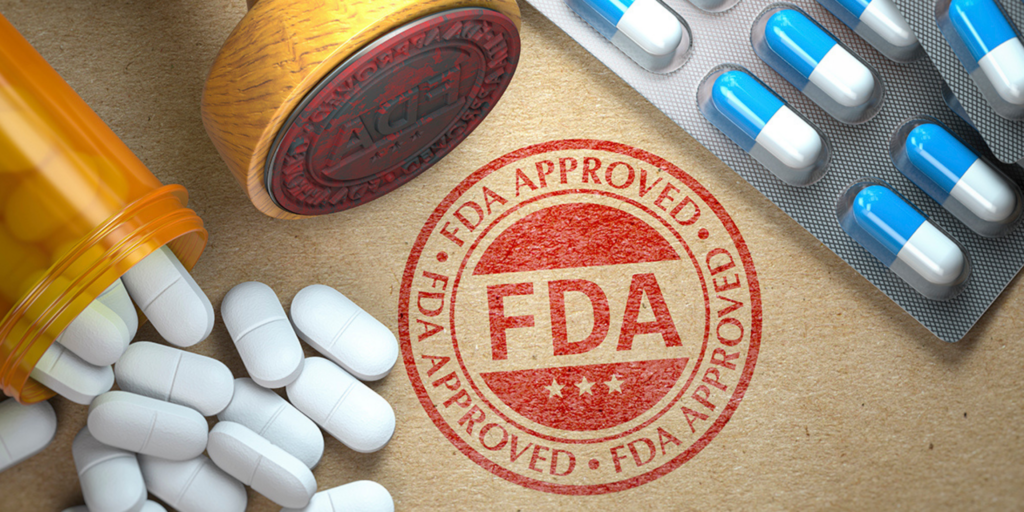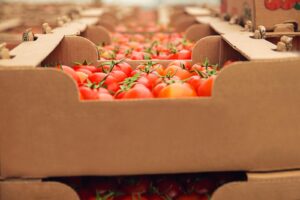Table of Contents:
- What is the FDA Prior Notice?
- FDA Prior Notice Timeframes
- FDA Prior Notice Required Data Elements
- FDA Registration and Filing Process
- Section 321 Shipments
- GeTS FDA Prior Notice Services
If you import, transport or export food into the United States, FDA must be given Prior Notice of imported food shipments, this is done through the FDA Prior Notice.
What is the FDA Prior Notice?
FDA Prior Notice is an electronic notification that importers or their authorized agents must submit to the U.S. Food and Drug Administration (FDA) before any shipment containing food or feed products arrives in the U.S. Prior notification of food imports improves risk assessment and inspection processes and helps CBP intercept contaminated products.
The FDA and the Customs and Border Protection (CBP) are two key agencies that determine whether food coming from foreign locations can be admitted into the country. Under the Public Health Security and Bio-terrorism Preparedness and Response Act of 2002, CBP is responsible for enforcing food regulations set by the FDA and other agencies to protect the country against actual or potential threats to its food supply.
FDA Prior Notice Timeframes
The FDA must receive and validate the pre-arrival Prior Notice within mode-specific timeframes:
Highway: 2 hours before arrival
Rail: 4 hours before arrival
Air: 4 hours before arrival
Ocean: 8 hours before arrival
In general, all food and feed commodities require a Prior Notice, except for the following:
- Meat, poultry and egg products that are under exclusive jurisdiction of the U.S. Department of Agriculture (USDA) and comply with the USDA regulations
- Homemade food and all personal food shipments sent person to person for non-commercial use
- Food samples for non-consumption valued below $200, including food samples destined for testing labs or manufacturers, but not for retailers or individuals
- Food for personal use accompanying a traveler
- Imported food for immediate export (without leaving the port of arrival)
Noncompliant food shipments may be refused entry, turned back, abandoned or destroyed, and the importer may receive financial and criminal penalties.
FDA Prior Notice Required Data Elements
Processed vs. Natural Food Products
For food that is not in its natural state, provide the manufacturer’s name and the registration number, city, and country of the manufacturer, or full manufacturer address and reason for failing to provide the registration number. For food that is in its natural state, provide the name of the grower and growing location, if known.
Entry filers or brokers must also transmit the following information to CBP in the Automated Commercial Environment (ACE) when requesting the clearance of food shipments:
- Affirmation of Compliance (AofC) Code
- Product Code
- Device Listing Number (LST)
- Intended Use Code
- Brand Name
- Active Ingredient Name
- Manufacturer Registration Number
- 510 (K) number
The FDA does not accept entry filings without the required data elements.
FDA Registration and Filing Process
All facilities that manufacture, process, pack or hold food for human or animal consumption in the U.S. must register with the FDA. These include facilities that handle bread, beverages (alcoholic and nonalcoholic), agri-food or agricultural food (grains, organic, beans), animal feed products, poultry (meat, red meat, white meat), fruits and vegetables, processed food (snacks, chocolates), and dietary supplements and ingredients.
Registration must be renewed every two years to comply with regulations. Foreign manufacturers and distributors of food products must also be registered with FDA before the shipment can enter the U.S. The foreign facility is required to have a U.S.-based agent to serve as a liaison.
After registration, the filer must include on all documentation for food shipments the FDA food facility registration number, name and address of the manufacturer, and the last place the product was stored, packed or processed. Any individual with the required information, including importers/exporters, brokers and U.S. agents, may submit the Prior Notice.
If using the services of a customs broker, importers should provide their broker with a copy of the food label and ingredients list for clearance purposes. In this case, the broker is responsible for preparing and filing the formal entry and the prior notice for the food shipment. The broker must submit the prior notice confirmation number to CBP. The barcoded prior notice confirmation number must also be shown on the air waybill, bill of lading, and other shipping documents. However, using a customs broker may not be the most cost-effective solution.
CBP will hold food shipments if there is no proof that the importer has filed a Prior Notice with FDA. We recommend having food shipments cross the border during FDA business hours to allow for inspection at the port of arrival.
Section 321 Shipments
Food shipments (excluding ackees, puffer fish, raw clams, raw oysters, raw mussels, and foods packed in airtight containers stored at room temperature) that are valued at $800 or less can be entered into the U.S. as Section 321 shipments. Prior Notice filing is still required for FDA-regulated products eligible for Section 321 clearance. CBP and the FDA may conduct periodic audits to determine the type and volume of FDA-regulated goods entered as Section 321.
GeTS FDA Prior Notice Services
Entry filing for FDA-regulated shipments can be time-consuming and expensive for food, beverage and animal feed manufacturers and distributors wishing to import these products into the U.S. First-time importers may also find it challenging to navigate the complex and constantly changing U.S. regulatory environment.
FDA Prior Notice filing can be done via the Automated Broker Interface (ABI) in ACE or via the Prior Notice System Interface (PNSI) on the FDA website. PNSI filing is free of charge, but it is not designed for high-volume traders. Information for each notice must be entered manually in the system, which takes up a lot of time. On the other hand, hiring a customs broker, carrier or agent to file the PN on your behalf is not cost-effective or practical, particularly if you are a larger size business that imports into the US frequently.
Global eTrade Services (GeTS) is a leading provider of trade facilitation solutions like the GeTS FDA PN, a flexible, cost-effective way to meet FDA Prior Notice filing requirements. Unlike other third-party PN filing services, GeTS FDA PN can help you save 90% off transaction costs and boost productivity with time-saving functionalities.
Benefits
- Prepare and file Prior Notices quickly and easily without outside assistance, and retain full control of your data
- Value-added features like the “Basket” that allows you to populate a large number of items in a box or basket and automatically create multiple FDA PN transactions for each product in the basket
- Eliminate duplicate data entries and reduce errors with comprehensive system validation
- Easy-to-use Interface makes filing a breeze and improves your work flow
- Ability To Track Responses helps you directly monitor responses from the FDA
- Multiple pricing plans helps you find the solution that fit your business
- Save time with the upload feature
Visit our FDA Prior Notice page or contact us today to learn more.






